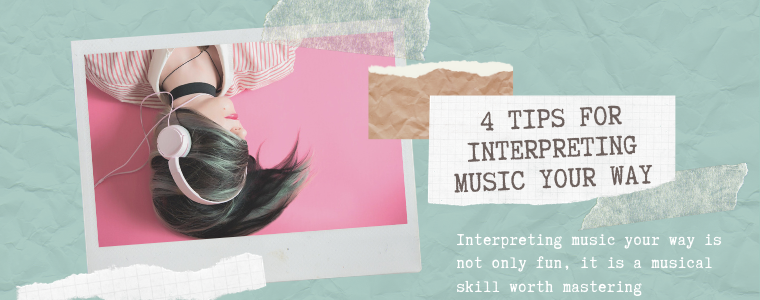
Following a score measure by measure, and its notations regarding tempo, dynamics, emotional expression, etc., can feel stifling for a creative musician. The good news is that over time, you will be able to take pieces of music, even well-known pieces, and interpret them your way.
At first, this can seem daunting because a musician who typically follows the musical notation may feel unable to play any other way no matter how much they may want to. However, classically trained string musicians interpret music their way all the time — and you can too.
First and foremost, never feel like you’re doing something wrong when adding your interpretation to an existing piece of music. It happens all the time and is not the same thing as musical plagiarism.
Need some inspiration? Check out Black Violin, who take famous hip hop, rap, and R&B songs and make them their own. In addition to their original pieces, the duo loves to take their favorite songs and interpret them on the violin. And, that’s a perfect segué to our first tip:
1. Play it in the style of another music genre
You can do the same thing by playing any piece of music through the sound filter of another music genre. Playing across musical genres used to be frowned upon by old-school classical music teachers, but that’s no longer the case. Just consider the successful career path the Croatian duo 2Cellos has launched by playing well-known rock songs in seemingly classical style.
As long as your translation upholds the tenets of music theory, there's no reason you can’t make over your favorite rock song into a classical piece, or interpret a Bach cello suite as if you’re playing live at a jazz club.
2. Include elements into an original composition
Jazz and hip hop are known for “quoting” note-for-note measures or phrases from well-known musical pieces. Composers and musicians have done this for centuries. Did you know that J.S. Bach was known for arranging music using this idea? Some of his most famous organ pieces are anchored in previously published compositions by Telemann and Vivaldi. Click here to listen to 12 Bach Organ Concertos which were directly written by “borrowing” Vivaldi concertos.
You can do the same thing, composing a piece of your own and then “borrowing” or “quoting” phrases from a favorite classical or other composition of your choosing.
3. Play it with a different tempo, dynamic range, or emotional state
There are so many “behind-the-scenes” elements that go into composing a piece of music. Composers who want their piece played exactly as they intended it to sound provide detailed tempo markings and may go so far as to add the metronome marking. Ignoring these marks and playing a piece at a completely different tempo can make a radical difference in how the piece sounds.
Similarly, the dynamic markings (e.g. forté, pianissimo, crescendo, etc.) also go a long way to support you in expressing a particular energy or emotion. Altering these will also affect the emotion or energy of a piece. Speaking of emotion, embody an emotion that is contrary to the original work’s expression, and then play the piece from there. Your emotional intentions will alter how it sounds, and the results can be extremely satisfying.
4. Hone your improvisational skills
The same awareness and creativity required for improvisation supports interpreting music in multiple ways. If you are more of a music reader than improviser, now is the time to begin honing your improvisational skills. Doing so will directly transfer over to your desire to creatively interpret music. The more you do it, the better you will be and the more successful your musical interpretations will sound.
MAKE IT FUN AND RE-EXPERIENCE THE JOY
Interpreting music your way is not only fun, it is a musical skill worth mastering. Grab your instrument, take out your current favorite piece of sheet music, and get started.

